Now Reading: Top 10 Best Places to Visit in Samut Songkhram – Floating Markets, Temples & Nature
-
01
Top 10 Best Places to Visit in Samut Songkhram – Floating Markets, Temples & Nature
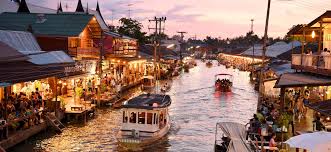
Top 10 Best Places to Visit in Samut Songkhram – Floating Markets, Temples & Nature
1.Mae Klong Railway MarketMae Klong Railway Market
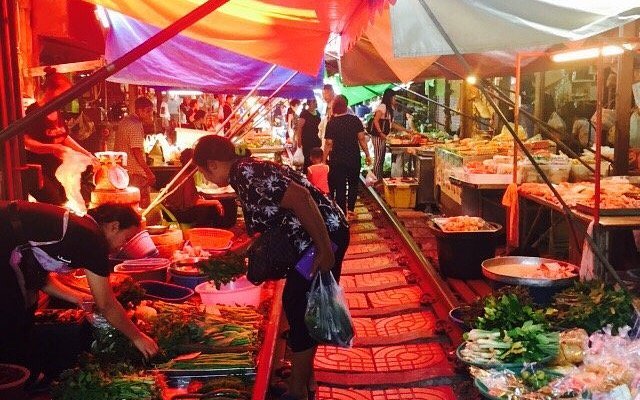
A railway market in Samut Songkhram Province, Mae Klong Market, provides travelers with a glimpse of daily life in Thailand. Because it is directly next to an operational railway, this market delivers an unforgettable, lively culture that anyone visiting should not miss.
In Mae Klong, people sell fresh fish, meat, vegetables, fruits and local products right on the railway tracks. What makes this market unique is the way everything gets busy as trains are about to arrive. As soon as they notice the train approaching, the stall owners quickly pull back their cloths and wares, then move them back in place instantly when the train has passed.
The market can be seen in a little over an hour, but seeing the train pass through the crowds is an experience you won’t soon forget. It proves that old customs and new urban infrastructure can coexist in Thailand.
- The course shouldn’t take longer than 1 hour to complete.
- Early in the day is the best time to find fresh goods and see the train go by
- The temple is found in Mae Klong, Samut Songkhram Province.
2.Amphawa Floating Market
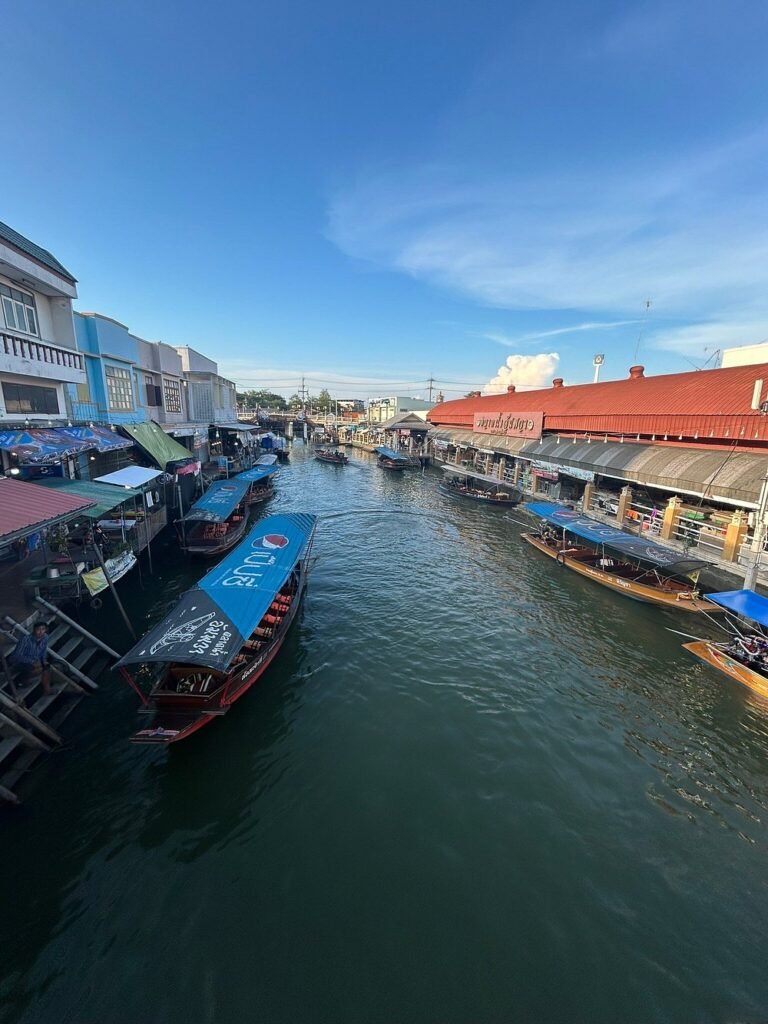
Located beside the canals of Samut Songkhram Province, the Amphawa Floating Market is famous for being one of Thailand’s most traditional and picturesque markets. Compared to some touristy markets, Amphawa manages to keep its simple local charm, right down to the beautiful evening lights.
A Market Experience You Won’t Find Anywhere Else
You’ll find Amphawa is most attractive after dark, when colorful boats offer seafood, local treats and hand-made items. There are colorful stalls along the canal selling all types of food, plus souvenirs and handmade products. The hum of twinkling lights and cool weather at night make everything feel magical and urges people to walk slowly and enjoy new foods.
Besides buying and eating, visitors to Amphawa can take a boat tour through nearby waterways to watch fireflies shine in the mangroves. Nearby, you’ll find interesting temples, traditional housing and a caring community that makes this area unique.
- It’s best to come between 3 PM and 9 PM.
- This community is found in Amphawa District, Samut Songkhram Province.
3.Wat Bang Kung
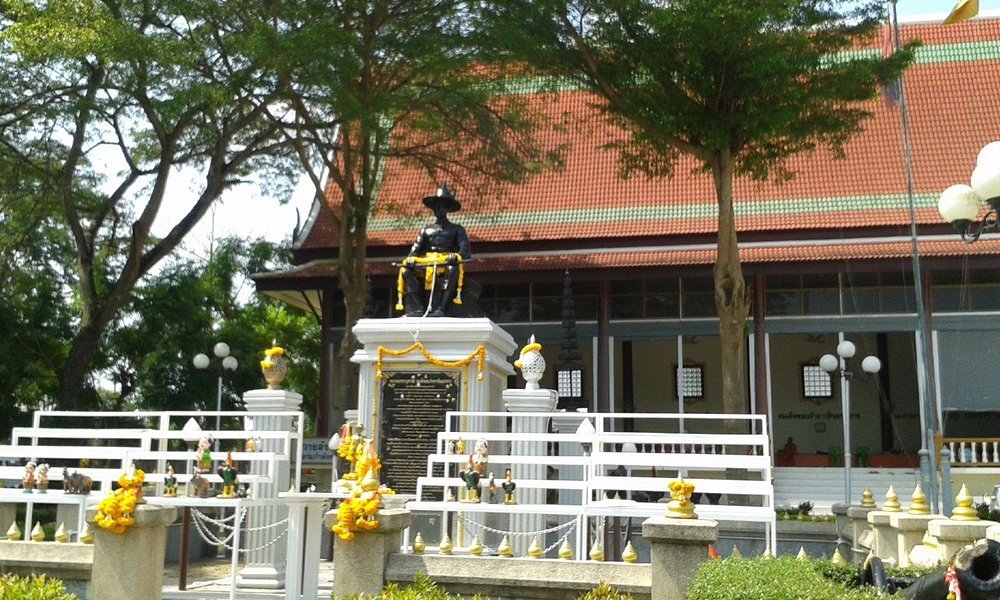
Wat Bang Kung: Famous Temple That Garners Different Opinions
Having been to Wat Bang Kung a few years ago, I wanted to visit it again and see what made it special. The temple is known for its ancient chapel sheltering a large banyan tree and for having great historical and religious significance. I tried again, inviting my elderly relatives and found it a little bit tricky.
Even today, the atmosphere in the temple is peaceful, suitable for worship and earning blessings. While I was there, the management system seemed out of order. There was a member of staff speaking through a megaphone, yet the messages were unclear and it wasn’t easy to follow for those coming for the first time.
While taking part in my rituals by choosing flowers, incense and candles, I got confused when choosing a numbered candle. The roadside seller said it was 20 baht, but there was no tag to prove it and she wouldn’t give me anything until I paid. I had to return the candle because I couldn’t tell what its properties were.
The Buddha Statue is gilded.
Gilding Buddha figures with golden leaf is one very special aspect of religion here. Even though it was interesting, the whole thing soured when temple staff wanted me to leave after I went in for more gilding, making me and everyone present uneasy.
4.Tha Kha Floating Market
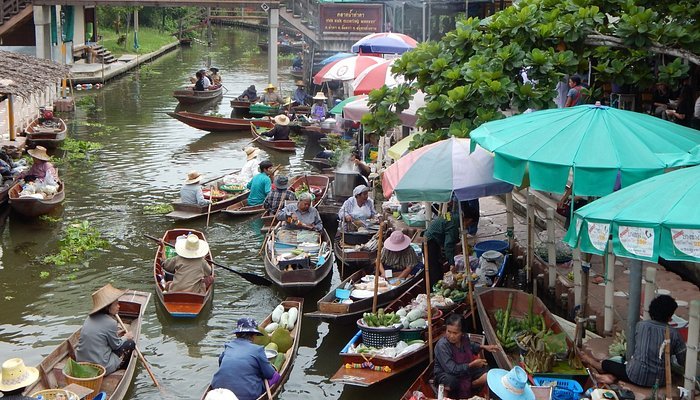
Now and then, our most unforgettable travel moments come by surprise—just as with our experience at Tha Kha Floating Market. Our landlady was bringing over some people when we passed by this lively market. It didn’t take long to fall in love with its unique authenticity. An easy stop became something we will remember for a long time.
A Market With All Kinds of Local Excitement
At Tha Kha Floating Market, vendors present Thai foods and local handicrafts from their boats, so you can get a close look at real market action in Thailand. The colorful surroundings, helpful staff and tasty smells attract guests time after time.
Not Fever for a Moment
Although we spent only a short time there, it showed that the market is worth much more exploration. To make the most of Tha Kha, you need to plan for an hour or two, no matter if you explore the stalls, eat street food or simply enjoy being beside the river.
Details about the Market
- The procedure takes about 1-2 hours.
- Go early in the morning to see the market in full swing.
- Location: Tha Kha, Samut Songkhram Province
5.King Rama II Memorial Park

After finishing my day at the Damnoen Saduak Floating Market, I passed by King Rama II Memorial Park on my way back in Bangkok. This specially cared for park serves as both a beautiful forest area and a monument to King Rama II, a monarch praised for his art and literature.
Everyone Has Access to Culture and Nature
You only have to pay 60 baht per person to visit, so anyone, local or tourist, can enjoy the park. There are lush gardens, a calm lotus pond and lovely views of the riverside which makes the park ideal for enjoying nature.
A Look at Thai Culture and Its Past
You’ll find the park’s museums inside traditional wooden properties which carefully keep the Thai heritage and atmosphere intact. Inside, wax models show Thai life and traditions, large enough for visitors to fully absorb the country’s culture.
📆 Why It Mattered
From 1809 to 1824, Rama II (Phra Phutthaloetla Naphalai) was king and is remembered for fueling a golden time for Thai arts such as poetry, music and dance. Rama II made this park to represent his accomplishments and love for Thailand’s cultural legacy. The museum commemorates his legacy and gives insight into the important trends from his era.
Pretty Sights and Creatures in the Wild
As well as being a place of great cultural value, the park is heaven for nature enthusiasts. Being surrounded by colorful flowers was wonderful and I happened to see a monitor lizard meandering through the garden.
Park Details are:
- The ticket price is 60 Baht.
- Late afternoon or early morning will offer the nicest lighting and temperatures.
- Place of Events: King Rama II Memorial Park in Samut Songkhram Province, Thailand
6.Wat Phet Samuth Woravihan
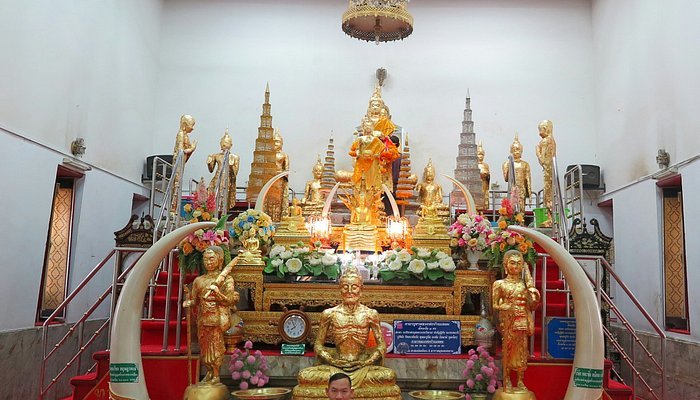
Last August, I went to Wat Phet Samut Woravihan with a group of family and friends. Mostly visited by Thai residents, the temple’s natural charisma makes the atmosphere positive, encouraging and tranquil.
Places Here with Spiritual Importance to Local People
Wat Phet Samut Woravihan is dear to the community living near it. Some holy sites attract lots of tourists, but Cambodia’s main temple is still a living center of faith where daily life and worship meet naturally. Tourists may observe many locals coming to show respect, meditate and join in Buddhist rituals which results in a place full of real devotion.
Architecture and Culture
The temple has many Thai architectural touches and includes various calm Buddha images for people to reflect upon. At the temple, the peaceful area gives a great chance for visitors to connect with Thai culture and spirituality in a way that is unique to them.
Wat Phet Samut Woravihan’s Importance
The temple is important for both religious reasons and because it protects the spiritual traditions of this area. It represents the strong place Buddhism has in Thai life, helping people bond and find time to think and do good.
Let’s check out some information about the temple.
- Ideal times to experience the city are early in the morning or whenever a local festival is happening.
- If you pay a visit, being respectful and soberly dressed is valued as worshippers are present in the temple.
- The development is located in Samut Songkhram Province, in Thailand.
7.Klong Kone Mangrove Forest
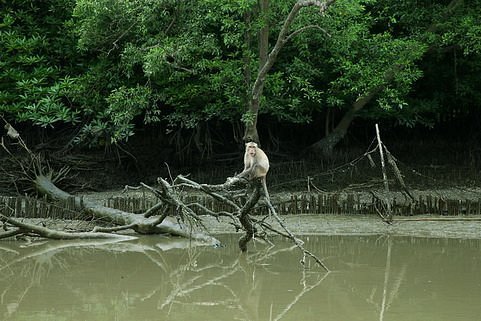
A highlight from my trip was wandering for an hour through the Klong Kone Mangrove Forest by canal boat. We arrived at the nearby Klong Kone Temple and there we paid Uncle Lek 700 baht for the boat rental to visit the flooded forest.
We spent a further 300 baht on bananas and sliced corn to share with the happy macaques on the climb. Finally, the boat sailed down the peaceful Klong Kone and through the village, landing us in a dense part of the mangrove by the Gulf of Thailand. They could sense we had food, so several macaques swam right toward our boat, hoping to get some and one tried to climb on, but the driver stopped them. Being able to feed monkeys from the boat was truly a lot of fun!
After the supplies were gone, we engaged in a valuable project by planting mangrove saplings at the shore with hundreds of observing macaques. Buying that item from a local business helped the mangrove ecosystem, adding even more value to our trip.
Tour Details:
- Lasting: Approximately an hour
- This trip costs 700 baht for the bangka and you need to buy your own animal food.
- The best time to visit if you want a serene trip is early in the morning.
- The ruins are found at the Klong Kone Temple area, next to the Gulf of Thailand.
8.Don Hoi Lot
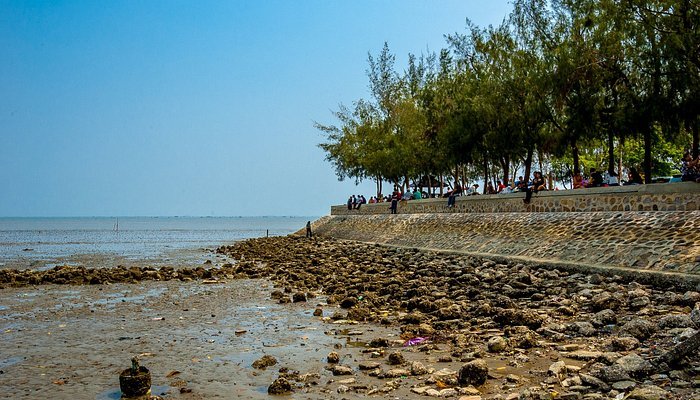
Many years ago, when I was only seven, I first came to Don Hoi Lot and it was rural and still very beautiful. A wonderful experience was when the tide was at its lowest and the mudflats stretched out into a lake filled with earth. All you had to do was walk into the mud, remove a bit of it with your foot, drop in a small amount of white cement and almost immediately, razor clams would show up. It was both straightforward and a lot of fun to experience nature.
These days, the patterns have changed and most people don’t actually catch wild clams like they used to. Even though some of the old activities are gone, Don Hoi Lot is just as lovely and relaxed as ever for people looking to feel close to nature and eat yummy seafood dishes.
- Low tide is the best time to go to see the mudflats.
- This clip was recorded at Don Hoi Lot which is famous for razor clams on Thailand’s coast.
9.Nativity of Our Lady Cathedral
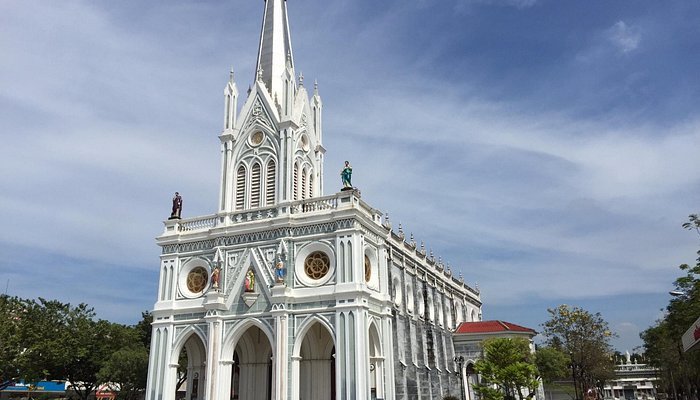
Built in the small town of Bang Nok Khwaek which belongs to the Bang Khonthi District of Samut Songkhram Province, the Nativity of Our Lady Cathedral is a main religious center of the Catholic Church in Thailand. Built following Roman or Latin rite customs, it is the main spiritual center for Catholics in the area.
The Diocese of Ratchaburi, a suffragan diocese under the Archdiocese of Bangkok, calls the cathedral its official seat. In 1965, Pope Paul VI elevated the Catholic Church in Thailand to its strong position today with the papal bull “Qui in fastigio.”
Aside from being important to Christian faith, the Nativity of Our Lady Cathedral is a cultural and historical attraction in the middle of Thailand. Being surrounded by peaceful nature in the area, the cathedral is a perfect place for everyone to reflect and relax in peace.
- Bang Nok Khwaek is found in Bang Khonthi District, Samut Songkhram Province, Thailand.
- Form: Roman Catholic Church (surviving elements of the Latin Rite)
- Ratchaburi Diocese
- In 1965, Pope Paul VI recognized the church as a cathedral.
10.Wat Bang Khae Noi
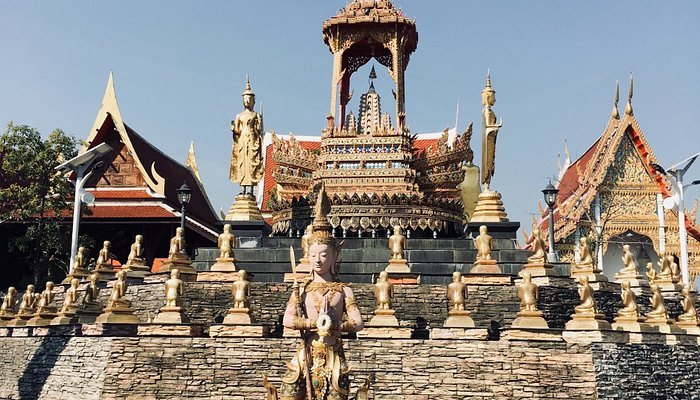
Wat Bang Khae Noi is a Treasured Craftwork of the Monastery Made from Teak
Since it opened in 1868, Wat Bang Khae Noi is celebrated for its magnificent teak wood art works that portray well-known stories from the life of Buddha. In a calm and beautiful area, this temple is now like a museum where tourists can see the skill and spiritual traditions of Thai artisans.
🙏 Importance and Heritage of a Religious Community
The temple’s interior is amazing and represents Buddhism and Thai art. Every wall inside the chapel is decorated with fine teak carvings that show scenes from the Buddha’s life—such as his birth, enlightenment and attainment of nirvana—as well as the Ten Kingdoms, each symbolizing a spiritual idea in Buddhist beliefs.
All parts of the temple’s inside are beautifully created. The space inside the chapel is lit up by the gilded wood used for the floor. Stone wall carvings depict people, animals, trees and mythological creatures, brought to life in teak. Wooden reliefs on the left and right describe Buddhist accounts and the wall facing the main altar boldly depicts the Ten Kingdoms.
Above the windows on both sides, you can see carvings of Buddha Vessantara, who is honored for his generosity and compassion in Thai Buddhism. The temple also boasts booths covered in golden lacquer which help create a holy and peaceful feeling.
A Place of Worship with Long History
Since the 60s, Wat Bang Khae Noi has acted as a place of worship and a storehouse of Thai Buddhist culture and decorative art. It allows visitors to understand the faith and the expert workmanship that residents continue to safeguard year after year.
Main Details of the Temple
- Founded: 1868
- One of the main things to see here are the many teak wood carvings telling Buddhist history and about the Ten Kingdoms.
- What stands out: Gilded wood on the floors, finely carved wall and window designs and a scene of Buddha Vessantara
- Having a calm environment where you can reflect, learn and admire Thai spiritual art
Related articles : Top 10 Best Places to Visit in Saraburi – Temples, Waterfalls & Nature












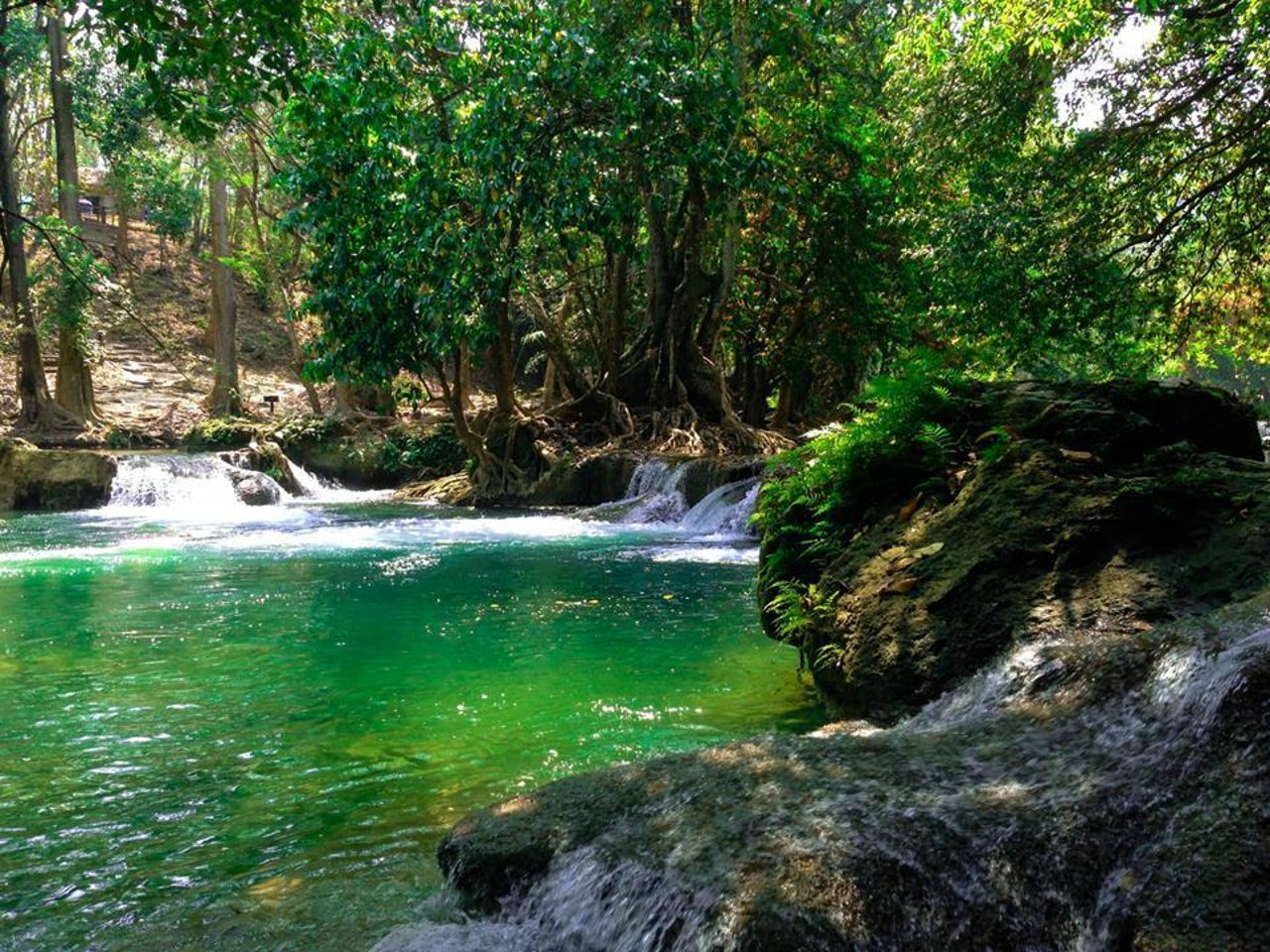
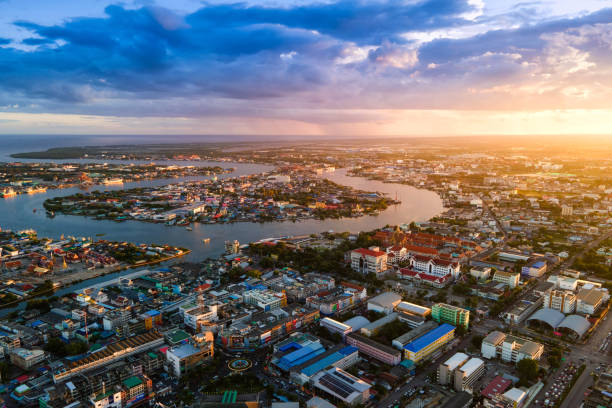
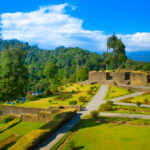
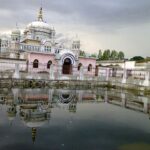

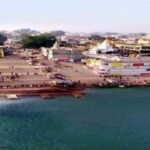

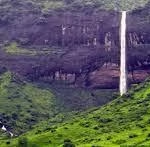
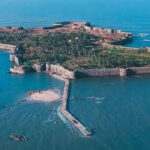
Pingback: Best Places to Visit in Samut Sakhon – Explore Temples, Markets & Nature